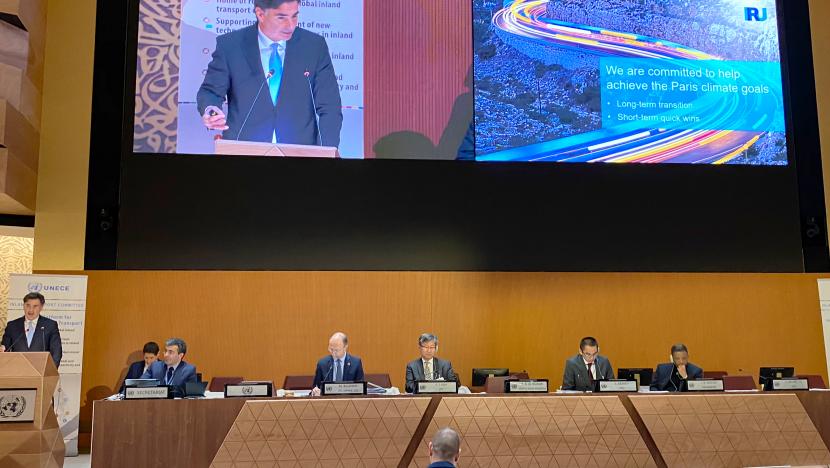Opening this weeks’ annual United Nations Inland Transport Committee (ITC) session, Secretary General Umberto de Pretto outlined IRU’s pragmatic approach on decarbonisation.
The only private sector voice on the panel, he outlined IRU’s integrated and holistic approach to decarbonisation in a keynote speech during the high-level session that opened the week-long talks.
Decarbonising transport
Umberto de Pretto mapped out practical considerations for the longer-term transition over the coming years, giving importance to the bigger picture “well-to-wheel” and full lifecycle approach of CO2 emissions, rather than the narrower “tank-to-wheel” approach that focuses primarily on the vehicle itself.
As a key driver of trade and development, road transport has a vital role to play in helping to reach global decarbonisation objectives.
“If we don’t get road transport right, we won’t achieve the UN’s sustainable development goals” said de Pretto to the hundreds of governments and transport authorities in attendance.
Reinforcing the commitment of IRU and its member associations to help decarbonise transport, de Pretto also presented four short-term “quick-wins” that can drive significant reductions in CO2 emissions in the near future, encouraging the road transport industry and governments to work together to move them forward.

